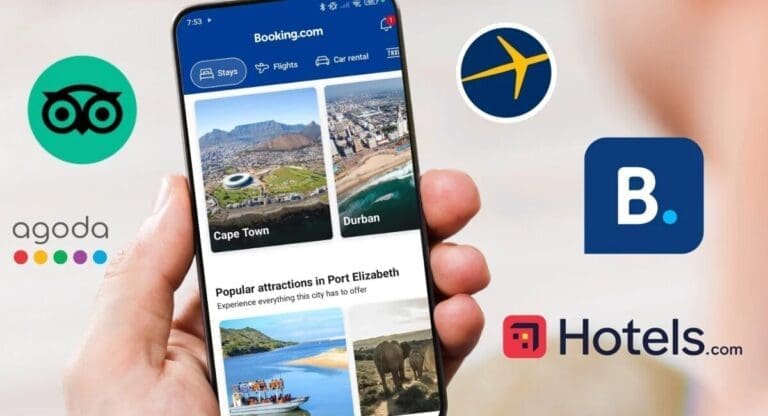
Managing a profitable hotel is akin to a theatrical production. The hotel staff serve as stagehands and performers while the guests are the audience. Every successful stage production requires cooperation among everyone involved.
It’s no different in the hotel business. The most profitable hotels create a culture of cooperation among the various departments and use a revenue management framework as the guiding star. The revenue manager is the director and creates a strong business foundation for the property.
Eliminate the piecemeal approach of manual price adjustments, channel reallocation, and other stand alone tactics for the guiding strategy of the revenue management framework.
This guidance can uncover previously “hidden business” and add thousands of Euros to the property’s balance sheet each year.
It’s possible because current technology offers hoteliers incredible insights with up-to-the-minute data to guide dynamic pricing and optimize the room rates. Yet, that’s only one piece of the revenue management puzzle.
The company Franco Grasso has worked with over 2500 properties across over thirty countries. With more than twenty years of revenue management consulting, they’ve guided hoteliers into profitable business tactics and helped them transition into an online, data-driven, and profitable approach.
There’s more than one path to adopting a revenue management framework. Many hoteliers choose from one or two of these paths initially.
- Data
- Technology
- Brand Reputation
- Competitive Analysis
- Channel Management
- Starting and Dynamic Rates
Revenue management is a powerful, flexible business framework grows hotel profitability and improves the guest experience.
Today’s Revenue Management
Some hoteliers have labeled revenue management as a tactic for being a low-cost leader. Nothing could be further from the truth.
Instead, revenue management assesses data from different sources to improve forecasting. Revenue managers use Revenue Available Per Room (REVPAR) as a key data point to guide pricing decisions.
Before anyone can set competitive prices, it’s essential to know the customer base.
- Demographics
- Travel purpose
- Hotel location
- Booking behavior
Revenue management can help every hotel become more profitable, and understanding the core clientele can improve the guest experience.
Develop a Successful Hotel Revenue Management Framework
The most successful hotel professionals adapt to changing markets and expectations. Revenue management helps modernize business practices and discover hidden business in plain sight.
It uses REVPAR as the core foundation to assess profitability and makes daily micro-adjustments because everyone knows the hotel business is one of constant change.
1- Don’t Forget the Weather
It doesn’t take a raging flood to affect the hotel business. Even chilly weather at Easter can mean fewer travelers to Rome at one of its biggest holidays, and a lack of winter snow impacts ski resorts.
Revenue management accounts for past occupancy rates, competitor research, weather forecasts, and more to make pricing decisions.
2- The Hotel’s Online Reputation Uncovers Hidden Business
Dr. Franco Grasso has found that strategic revenue management uncovers “hidden business” thanks to online visibility.
He says, “hidden business, online and off-line work-of-mouth triggered by a favorable quality/price relationship and generated mainly directly or indirectly by online channels.”
Dr. Grasso sees each hotel room as an income and business opportunity. He leans on his decades of experience in the revenue management space to recommend specific tactics. For example, use available software to make an interesting offer within a limited time.
For instance, a hotel can make a specific offer for one week to a group of tour operators. Hoteliers know they ask for low rates, so why not offer them an attractive one?
When hoteliers make such offers strategically, they cover their variable costs and can give the hotel a bump in online rankings during the busy season when visitors pay higher rates. This strategy uncovers hidden business for all hotels. Plus, it’s more effective and less expensive than trade shows.
Take a seasonal hotel that’s only open a few weeks a year. Traditionally, hotels may have decided it’s only worth opening for 3-4 months because they’re at the seashore or high in the mountains. However, this is a limited view of what’s possible, costing hotels thousands in unrealized potential.
Such hotels invariably find hidden business when they implement revenue management. One example is opening earlier than “just in time.” Opening a few weeks earlier and offering rooms at enticing rates can bring guests in who leave positive reviews and bump visibility for the property. That approach allows the hotel to raise rates and still attract guests as the season gets busier.
The revenue management framework extends the season by two to five months or even longer for some resort hotels. Strategically managing the property’s online visibility is at the heart of revenue management and routinely finds new business.
3- Create a Revenue Consortium
Everyone benefits when hotels share ideas and pool resources to promote the region. Dr. Grasso experimented with a small group of hotels in the Marche district of Italy and other areas. These are provincial areas not known for their eagerness to embrace change. However, Dr. Grasso encouraged a consortium with each hotel implementing revenue management principles. They discovered the consortium encouraged:
- Guests could enjoy longer or more frequent stays
- Hotels experience higher occupancy rates at a greater profit
- Services increased
As the area’s reputation grows, the consortium has more contractual influence over airlines, DMOs, political institutions, and others. In other words, it enlarges the pie so everyone benefits. The foundation of such a collaboration is revenue management.
4- Improve Cross-Departmental Collaboration
Dr. Grasso once settled a dispute at a hotel in Northern Italy. Several managers and department heads found their responsibilities overlapped, making owning specific invoices and profits difficult. This is common in hotels without revenue management.
Within the revenue management framework, the revenue manager acts as the play’s director and brings all the departments together. With collaboration, there’s no rogue manager overselling too many rooms or having the front desk staff surprised by marketing promotions. The revenue manager coordinates the data to make the next logical step.
5- Find a Balance
Spillage, spoilage, and overbooking are a problem for many hotels. Preventing these requires sharp inventory management and dynamic pricing for higher hotel profits. Hotel professionals can work together to create packages, plan online promotions, and review group sales contracts. The hotel’s revenue manager guides the pricing and distribution plan.
Some Hotels Are Easier Ideal Candidates for Revenue Management
While revenue management can work for all types of hotels, there is an “ideal.”
“A 4-star hotel, resort, or in an art city, possibly near the centers of interest (beach, ski slopes, historical center..), without a traditional restaurant but with a restaurant – bar, with around 70 rooms, without a mini-bar and with a floor distributor.” Franco Grasso Of course such a hotel gets great results with revenue management.
However, a hotel is a hotel, and the grass isn’t always greener. Even a 4-star property in Rome has concerns. For one, there’s a lot of competition from surrounding properties. How can the hotel stand out online? Then, the fixed costs of such a hotel are higher than those of a similar property in a less visited city.
No matter the hotel, revenue managers focus on creating occupancy rates at the best rate for that day. It’s a data-driven approach requiring current data, analysis skills, and cooperation of departments. Together, this creates an environment for a solid business foundation and profitable hotel.
Final Thoughts
Revenue management harnesses the data and ties it to business results. More than a plug-and-play solution, a revenue manager can create a strategic framework that benefits your specific property.
Check out also the Ten Revenue Management Tips for Hotels and start improving your hotel’s profitability today.





















